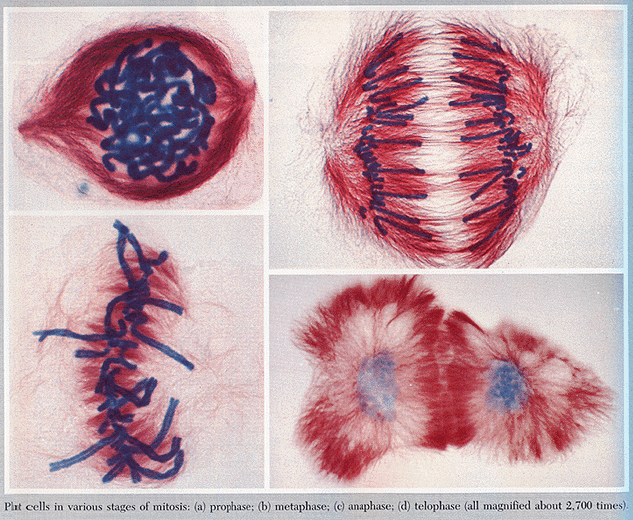
The four major phases of mitosis in a plant cell.
Regardless of their chromosome number, all kinds of eukaryotic cells can undergo mitosis.

The four major phases of mitosis in a plant cell.
The first division is called the reduction division, since this is the one during which chromosome number in the cells is reduced.
Only certain types of cells divide by meiosis that occur in the archegonium/antheridium in plants, and in the gonads in animals. Cells with an odd number of chromosome sets normally can not carry out meiosis, as chromosome pairing is messed up (see sympatric speciation by polyploidy in the section Macroevolution).
Two consecutive divisions of a particular cell type, which results in four daughter cells that have half of the chromosome number of their mother cell. The daughter cells are thus genetically different from the mother cell, and due to independent, random assortment of chromosomes and crossing over, they are genetically differentfrom one another as well.
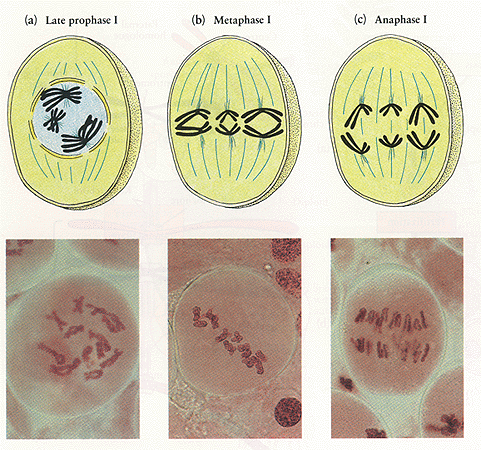 - -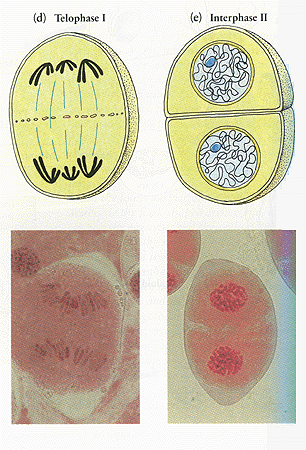 |
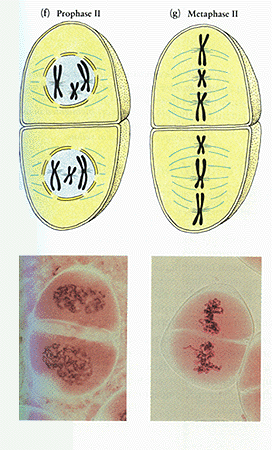 - -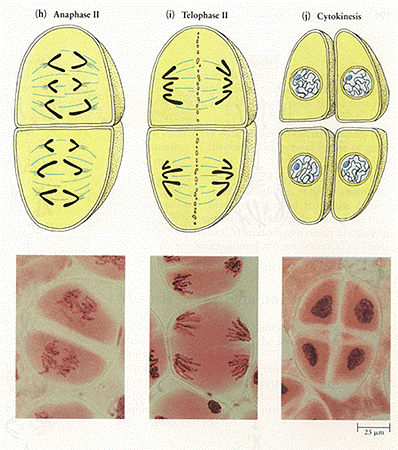 |
Stages of meiosis during pollen formation in the flower of a lily.